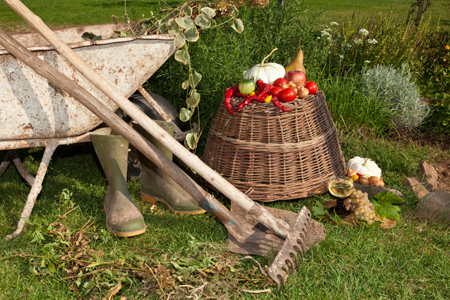 Save for a few juice bars whipping up olive-colored potions, most big cities fall short in the green department. For newcomers, and especially those moving from beyond a metro area, a lack of plant life can be a real downer.
Save for a few juice bars whipping up olive-colored potions, most big cities fall short in the green department. For newcomers, and especially those moving from beyond a metro area, a lack of plant life can be a real downer.
To combat those concrete jungle blues, pretend your apartment isn’t spatially-challenged and start a garden. Playing with dirt oddly alleviates stress, so there’s no better way to ease the transition between country and city.
To begin, select an area that suits your living arrangement. Unless you’re one of the few renters with a bit of grass to your name, you probably won’t have a yard to flex your green thumb in. Your patio or balcony’s a given, but there are other areas you can green up, too.
- Privacy walls
- Railings
- Window boxes
- Fire escapes
- Storage units
- Overhangs
- Walls or doorways
Whichever location you choose, keep in mind that surrounding buildings will cast shadows throughout the day. According to Urban Organic Gardener, your garden may receive full sun (6 or more hours of sunshine); partial sun (4-5 hours); partial shade (2-4 hours); or shade (less than an hour).
Plantings that require full sun include basil, peppers, geraniums, tomatoes, crocuses and cilantro. Root vegetables, lilies, tulips, parsley and wisteria do well with partial sun. Violets, some ivy and fern varieties and greens like spinach and kale can survive in partially shady or shady areas.
If you find yourself yearning for greener pastures after moving to the city, consider creating your own lush oasis with an urban garden.
 Suzanne De Vita is RISMedia's Online Associate Editor and social butterfly. Despite severely lacking in the poise department, her name is derived from a Hebrew word meaning 'graceful lily.'
Suzanne De Vita is RISMedia's Online Associate Editor and social butterfly. Despite severely lacking in the poise department, her name is derived from a Hebrew word meaning 'graceful lily.'







